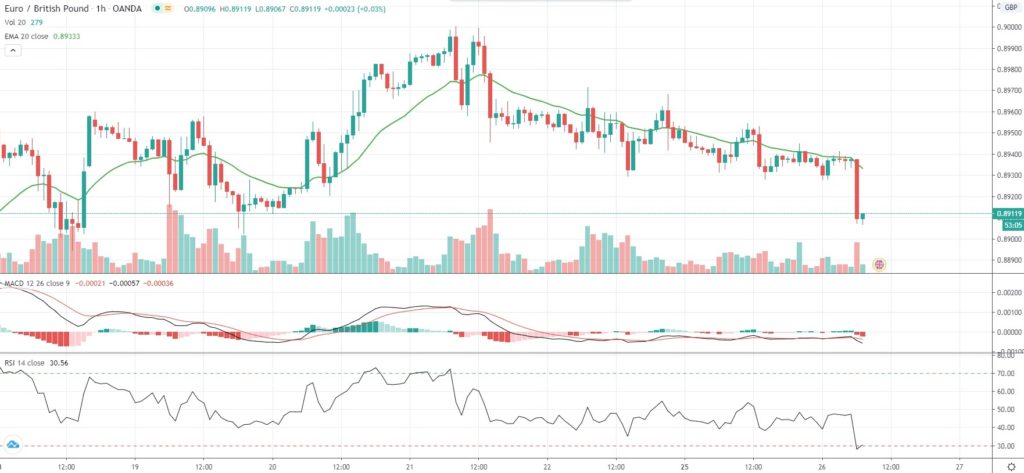EUR/GBP remained relatively stable near intraday lows during early European trade, as market sentiment was affected by both rising optimism over a global recovery from the coronavirus pandemic and by concerns over escalating US-China tensions.
With restrictive measures on businesses and movement being gradually lifted, investor optimism over a swift return to growth seemed to have set in. Meanwhile, markets also perceived trade, the handling of the COVID-19 pandemic and Beijing’s decision to impose new security laws on Hong Kong as factors for a further deterioration in relations between China and the United States.
“With elections looming, U.S. politicians are compelled to ratchet up the tension in the coming months,” analysts from Singapore’s DBS Bank wrote in an investor note. “A ruinous cold war that hurts global trade, supply chains, efficiency of common standards and geopolitical stability is increasingly on the cards, in our view.”
On the macroeconomic front, the Ifo institute said that German export companies were more optimistic in May following a “catastrophic” April, with an export gauge rising to a reading of -26.9 this month from -50.2 in April. The Ifo institute said that virtually “every sector still expects further declines, yet these will be less sharp than had been expected in the previous month.”
Additionally, GfK Group reported earlier Tuesday that German consumer sentiment had improved, with the respective gauge for June rising to -18.9 from a revised reading of -23.1 in May. The June reading has been the second lowest on record, with businesses in Germany gradually reopening and both economic and income expectations along with the propensity to buy slightly rising.
As of 7:06 GMT on Tuesday EUR/GBP was losing 0.33% to trade at 0.8911, after touching an intraday low of 0.8907, or a level not seen since May 19th (0.8902).
On today’s economic calendar, at 13:00 GMT the ECB will release its Financial Stability Review. The Accounts from the bank’s policy meeting held on April 29th-30th showed that Eurozone’s economy could contract between 5% and 12% in 2020, while growth was expected to resume with the gradual lifting of restrictive measures. The ECB remains fully prepared to adjust all of its measures in support of the economy, which also includes expanding the size of the pandemic emergency purchase programme and adjusting its composition.
Bond Yield Spread
The spread between 2-year UK and 2-year German bond yields, which reflects the flow of funds in a short term, equaled 60.9 basis points (0.609%) as of 6:15 GMT on Tuesday. It has been the lowest spread since March 2015.
Daily Pivot Levels (traditional method of calculation)
Central Pivot – 0.8946
R1 – 0.8963
R2 – 0.8986
R3 – 0.9003
R4 – 0.9021
S1 – 0.8924
S2 – 0.8906
S3 – 0.8884
S4 – 0.8861






